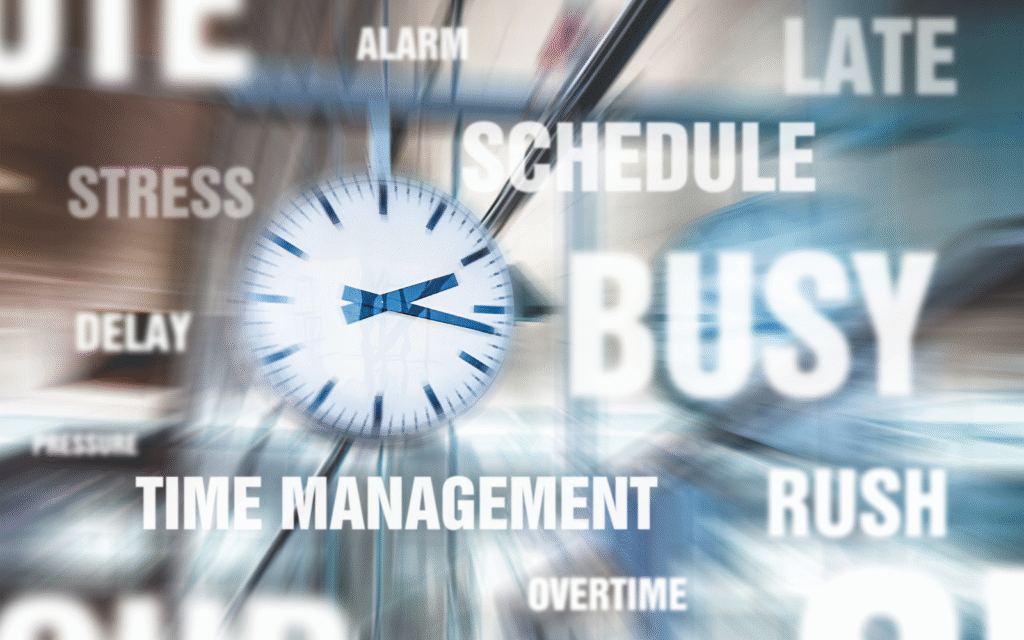How to Manage Stress at Work: 7 Effective Strategies for Success

Work stress is a common challenge that affects employees at all levels. Prolonged exposure to stressful situations can result in chronic stress, impacting both physical and mental health. When left unmanaged, workplace stress can impact productivity, emotional health, and overall well-being.
But here’s the good news –you can take control. This guide will show you how to manage stress at work with seven effective strategies.
Whether it’s setting work-life boundaries, adjusting your daily routine, or improving your physical workspace, these techniques will help you reduce stress and maintain a healthy balance between work and personal life.
Key Takeaways: How to Manage Stress at Work
- Learn practical ways to relieve stress and boost your well-being.
- Identify what’s causing stress and find solutions to keep it at a manageable level.
- Discover how stress management can benefit both work and home life.
- Improve your ability to cope with chronic work stress through effective techniques.
- Build clear boundaries between your job and personal time.
1. Identify What’s Causing Stress

Before you can manage stress, you need to know what’s triggering it. Work related stress often comes from:
- Heavy workloads and tight deadlines.
- Long working hours without breaks.
- Difficult co-workers or lack of support.
- Unclear expectations from management.
- A negative work environment that increases tension.
Start by keeping a stress journal for a week. Identify when you feel most overwhelmed and look for patterns. Awareness is the first step to finding solutions.
2. Set Clear Work-Life Boundaries

Blurring the line between work and personal life can lead to chronic stress. That’s why good stress management includes setting clear boundaries.
Tips for Better Work-Life Boundaries:
- Avoid checking emails outside of working hours.
- Take vacation days to reset and relax.
- Create a dedicated workspace if you work from home.
- Communicate with co-workers about your availability.
A well-balanced work and home life reduces stress at work and improves emotional health.
3. Organize Your Tasks and Prioritize

A messy workload leads to a messy mind. Poor organization can contribute to workplace stress and make tasks feel overwhelming.
How to Stay Organized:
- Use a to-do list or project management tool.
- Prioritize important tasks and break large projects into smaller steps.
- Focus on one task at a time to avoid negative effects of multitasking.
- Find solutions to workflow inefficiencies that increase pressure.
For enhanced productivity and time management, consider implementing the Pomodoro Technique effectively to structure your work sessions and maintain focus.
Taking control of your workload helps reduce stress and keep your daily routine manageable.
4. Take Regular Breaks to Relieve Stress

Working non-stop isn’t a sign of productivity-it’s a fast track to burnout. Stress management requires taking intentional breaks to reset your mind and body.
Simple Activities to Reduce Stress:
- Step away from your desk for a short walk.
- Stretch or do light exercise to ease tension.
- Take a deep breath and focus on the present moment.
- Apply the Pomodoro technique: Work for 25 minutes, then take a 5-minute break.
Breaks help you relax and return to work with renewed focus. You can also explore meditation techniques for stress relief or learn how to reduce stress naturally through various approaches. Consider incorporating mindfulness practices for workplace wellness into your daily routine.
5. Maintain a Healthy Lifestyle for Stress Management

Your physical health plays a big role in how you handle stressful situations. Poor habits like relying on vending machine snacks or skipping meals can make work stress worse.
Healthy Habits to Cope with Stress:
- Exercise regularly – Even a simple activity like walking helps.
- Eat balanced meals – Avoid processed foods that lead to energy crashes.
- Stay hydrated – Drink plenty of water throughout the day.
- Get enough sleep – Lack of sleep increases anxiety and negative thoughts.
Taking care of your physical health improves your ability to deal with work related stress effectively. Learn more about the importance of physical well-being at work and discover eco-friendly ways to stay active at work.
6. Build a Support System at Work

You don’t have to handle workplace stress alone. Talking to trusted friends, colleagues, or family can help you find solutions and shift your perspective from a negative lens to a more positive one.
Ways to Seek Support:
- Have an open conversation with your manager about your workload.
- Connect with co-workers who understand the challenges you’re facing.
- Seek professional help if chronic work stress affects your mental health.
A strong support system helps reduce stress and makes challenging situations easier to handle. Understanding the essential factors and benefits for mental health can provide valuable insights into maintaining emotional wellness.
7. Improve Your Physical Workspace for Comfort

Your physical workspace can either increase or decrease stress at work. A cluttered desk, poor lighting, or an uncomfortable chair can negatively affect your focus and well-being.
How to Create a Stress-Free Workspace:
- Declutter your desk to reduce distractions.
- Use ergonomic furniture for better posture.
- Add plants or calming colors to improve mood.
- Adjust lighting to prevent eye strain.
Making small changes to your physical workspace can significantly reduce stress and enhance productivity. Consider investing in best ergonomic office chairs for health and explore best office LED light options for optimal workspace illumination.
Adding air purifying plants in offices can improve both air quality and mood. Learn more about how to create a green office space and the impact of air quality on health.
Summary
Managing workplace stress is about making small, intentional changes to your routine. Identify what’s causing stress, set work-life boundaries, and organize your tasks effectively. Take breaks, maintain a healthy lifestyle, and seek support from trusted friends or colleagues.
Your physical health, mental health, and emotional health are all connected. By prioritizing good stress management, you can create a healthier work environment and avoid the negative effects of chronic stress. Explore eco-friendly ways to reduce workplace stress and discover how workplace fitness boosts well-being.
Remember, a little effort in stress management today can lead to long-term well-being and job satisfaction!
Frequently Asked Questions
What Are the Common Signs of Work Related Stress?
Symptoms include anxiety, fatigue, irritability, trouble focusing, and physical issues like headaches or digestive problems.
How Can I Relieve Stress Quickly During Work?
Try deep breathing, a short walk, stretching, or listening to music to reset your mind. You can also practice benefits of mindfulness for stress reduction techniques.
Does Chronic Work Stress Affect Physical Health?
Yes, long term exposure to stress can lead to heart disease, high blood pressure, and other health issues.
How Can I Improve My Work-Life Balance?
Set clear boundaries, use vacation days, and avoid work-related tasks outside of working hours.
Can a Healthy Diet Help Reduce Work Stress?
Absolutely! Eating nutritious meals instead of vending machine snacks helps stabilize energy levels and mood.






Your point of view caught my eye and was very interesting. Thanks. I have a question for you.